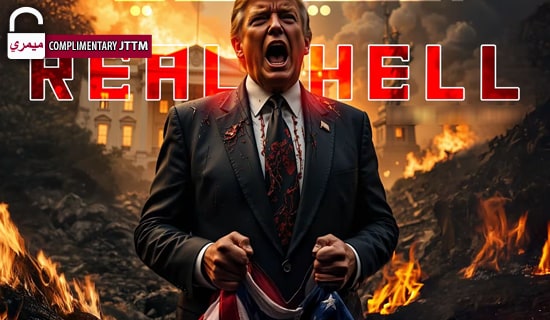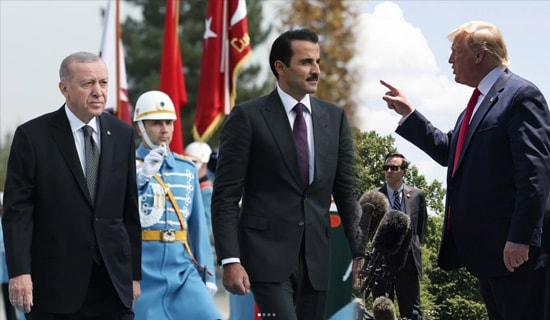In a recent article, Bangladesh columnist Syed Badrul Ahsan examined the historical context Hindu persecution at the hands of Islamist forces. His article, titled "Our Hindu Problem", was published by a Bangladeshi website.
Bangladesh, formerly East Pakistan, was part of Pakistan until in 1971. After a nine-month War of liberation, the Bangla-speaking province seceded and became Bangladesh..
In his article, the Bangladeshi columnist details how a range of Islamist elements have engendered a hospitable environment - both before and after the creation of Bangladesh - for forces that are systematically eliminating Hindus from Bangladesh.

Protests in India against the persecution of Hindus in Bangladesh (Hinduexistence.org)
Following are excerpts from the article:
"[From 1947 To] 1971, The Number Of Hindus In The Province Had Declined [From Thirty-Five] To Twenty-Nine Percent; Today, In The Putatively Secular People's Republic Of Bangladesh, The Number Of Hindus Is A Disturbingly Less Than Ten Percent"
"Hindus formed thirty-five percent of the population of East Bengal [now Bangladesh] at the time of the partition of India in 1947. By the time the people of East Bengal/East Pakistan decided to wage war for an independent Bengali republic in 1971, the number of Hindus in the province had declined to twenty-nine percent. Today, in the putatively secular People's Republic of Bangladesh, the number of Hindus is a disturbingly less than ten percent.
"Where have all these people, our very own fellow [Hindu] Bengalis, gone? The answer, of course, is not hard to come by. And as you reflect on the particular circumstances that have forced Hindus to leave the country, the majority of them going over to India and a fairly large number opting to find homes in the developed world, you realize that conditions are still being created to force more Hindus to abandon their ancestral homes and find sanctuary outside Bangladesh.
"We have not treated our Hindus well. That truth emerges yet again when you realize the sinister campaign which the Narayanganj lawmaker (more a lawbreaker) Selim Osman spearheaded the other day, in cahoots with the notorious managing committee of the Pyar Sattar Latif High School in Narayanganj, to have the head teacher of the school, Shyamal Kanti Bhakta, slapped with the [blasphemy] charge for insulting Islam. That is a lie, but now Osman and his goons are busy trying to whip up a campaign, through inciting the [Islamist organization] Hefazat-e-Islam, against Bhakta, [and] against Education Minister Nurul Islam Nahid, over the entire affair. Bhakta is a Hindu and so must pay the price.
"No, we have not treated our Hindus well. The story goes back to Partition, when Mohammad Ali Jinnah and the All India Muslim League tried drilling into us the bad sophistry that Hindus and Muslims were not two religious committees [sic, i.e. communities] but two absolutely different nations. Two million Hindus and Muslims paid the price for that twisted version of history. Those who survived left their homes behind, to try to eke out the remains of life in strange new geographical circumstances.
"The lie persisted throughout the twenty-four years the Bengalis of East Bengal formed part of the state of Pakistan. Not even the prominent politician Jogendranath Mandal, despite his love for his motherland, was able to stay on in Pakistan. He wrote a long letter to [the then Pakistani] Prime Minister Liaquat Ali Khan detailing all his grievances about the ways in which Pakistan was treating its Hindus. And then he left, to find a home in [India's eastern state of] West Bengal."
"[Bangladeshi Islamic Cleric] Moulana Abdul Hamid Khan Bhashani Felt No Embarrassment In Playing To The Gallery; Food Was In Short Supply, Said He, Because The Nation's Food Minister Was A Hindu"
"In the 1960s, obsessed with the need to impose a Pakistani ideology, whatever that meant, on the country's secular Bengalis, President Ayub Khan and his Information Minister, the Urdu-speaking Khwaja Shahabuddin, decreed a ban on [the Hindu Nobel laureate] Rabindranath Tagore. In their eyes, Tagore was a dangerous Hindu and ought not to be touched with a barge pole. In the event, the move backfired. Ayub and Shahabuddin were soon lost in the wooded spaces of history. Tagore, predictably, thrived.
"A particular target of the Pakistan army as it went into its genocidal operations against Bengalis in March 1971 was the Hindu intellectual section of the population. In the earliest phases of the murder spree, the soldiers killed the philosopher Gobindo Chandra Dev and Jyotirmoy Guhathakurta. They did not even spare Madhu da, he of the famed Madhu's canteen at Dhaka University. In Comilla, they abducted the respected politician Dhirendranath Dutta and his son and put them through torture before putting them to death. Through the nine months of the war, Hindu women (as well as Muslim) were picked up and carried off to the cantonments to be raped endlessly. That was in 1971 [during the War of Liberation].
"Hindus have not fared any better in our independent Bangladesh. In the first flush of liberation, the government of the new republic was reluctant to have the [Hindu temple] Kali Mandir at the Race Course (today's Suhrawardy Udyan), [which was] razed by the Pakistan army on 25 March 1971, restored. That was a saddening experience, for Hindus and Muslims alike. It did not make people happy.
"In 1974, at the height of the food crisis in Bangladesh, one which Bangabandhu's government was desperately trying to roll back, [Islamic cleric] Moulana Abdul Hamid Khan Bhashani felt no embarrassment in playing to the gallery. Food was in short supply, said he, because the nation's food minister was a Hindu. The unkind reference was to the eminently honorable and elderly Phani Bhushan Majumdar. The statement did not elevate Bhashani in the public eye.
"Immediately after the liberation of Bangladesh, Bengali collaborators of the Pakistan army, then stranded in what remained of Pakistan, were dispatched to the Middle East by the [Zulfiqar Ali] Bhutto government to peddle the falsehood that Hindus had taken over 'East Pakistan' and Muslims were being eliminated systematically. Among these agents of falsehood were [Jamaat-e-Islami leaders] Ghulam Azam and Motiur Rahman Nizami. Not even Nurul Amin, then Pakistan's vice president under Z. A. Bhutto, could resist the temptation to belittle his lost motherland [Bangladesh]. He argued that large-scale killings were going on in Bangladesh per courtesy of its government. The implications were clear: Muslims were being killed by a Hindu-influenced government."
"Back In October 2001, Within Moments Of The Electoral Triumph Of The [Right-Wing] Bangladesh Nationalist Party, Hindu Families... Were Pounced Upon By Activists And Supporters Of The Party; Hindu Men Were Beaten Up, Hindu Women Were Raped, Hindu Villages Were Set Ablaze"
"There have been serious allegations of Hindu property being commandeered by political elements, shockingly by powerful people even in the ruling [secular party] Awami League, in Bangladesh. A senior figure of the Hindu community in Dhaka publicly condemns a ruling party politician in Faridpur of seizing Hindu property. The next day, Hindu leaders in Faridpur decry the Dhaka man's statement and tell the country everything is going well. One does not need much imagination to understand what could have happened.
"In recent days, the veneer of respectability which some of the powerful wear on their faces was torn down, just a little, when the 'philanthropist' Ragib Ali was compelled by the law to hand over property he had seized decades ago to its rightful Hindu owner. Will the law now haul Ragib Ali to court over the lawlessness he is guilty of? That, if wagging tongues are to be believed, is unlikely. There are too many robber barons around for the state to swat down.
"Back in October 2001, within moments of the electoral triumph of the [right-wing] Bangladesh Nationalist Party, Hindu families in various regions of the country were pounced upon by activists and supporters of the party. Hindu men were beaten up, Hindu women were raped, Hindu villages were set ablaze. It was a bizarre tale, almost straight out of the Pakistan army's book, compiled and taught in 1971.
"On a personal note, slightly over a decade ago I found myself in Pakistan in connection with a media conference. A smiling Pakistani walked up to me, shook hands [with me] and then wanted to know if there were many Hindus in Bangladesh. I told him there were no Hindus in my country. His smile turned bigger. For good measure, I informed him that there were no Buddhists or Christians either in Bangladesh. You can imagine the sheer happiness spreading all across his face. In the end, I told him there were no Muslims in Bangladesh. He stopped smiling. Shock was written all over him.
"And then it was for me [to] put him at ease. Indeed, I told him, there were Muslims, Hindus, Christians, Buddhists and people of other faiths and beliefs and cultures in Bangladesh. All of them prayed to their gods in their distinctive ways. All of them were equal before the law. All of us were citizens of a secular republic, for Bangladesh was born of the crucible of war as a land for everyone, as a home for a multiplicity of faiths. He looked a trifle reassured. I suspect, though, that he could not quite comprehend how different the People's Republic of Bangladesh was - in ethos, philosophy and history - from the Islamic Republic of Pakistan. All these years after those smiles, after that handshake, that shock and that reassurance, I wonder if I was right in telling him what I did."
Source: BDNews.com (Bangladesh), May 23, 2016. The original English of the article has been lightly edited for clarity and standardization.




.jpg)